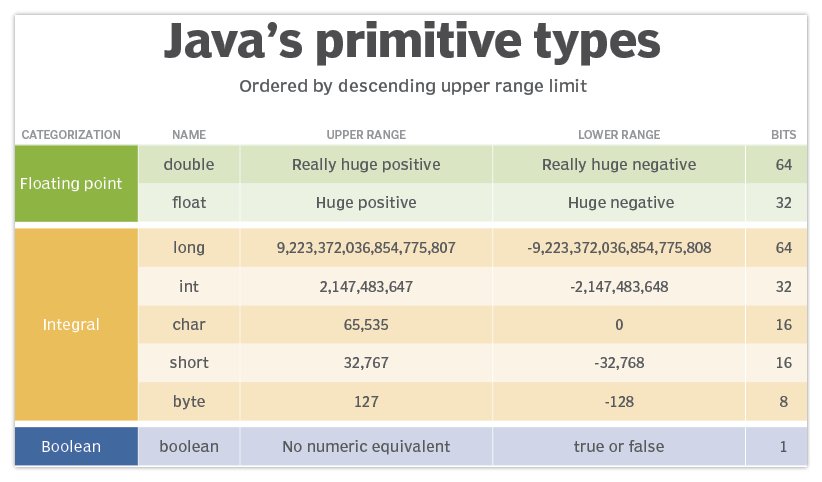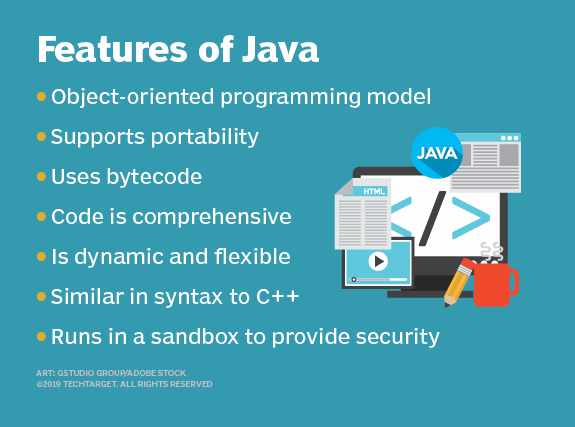What are the advantages of Java?
Benefits of Java
When the seminal Java whitepaper introduced the language in 1995, it listed seven key benefits that set it above its competitors. Today Java powers large-scale systems that run on major clouds such as AWS and Google Cloud, which makes these benefits even more relevant for modern deployments and certification paths.
Almost 30 years have passed since that whitepaper was penned, and while many of those benefits remain valid, in 2025 there are more reasons than ever to choose Java as your deployment platform of choice. If you follow Java roadmaps or popular technical blogs, you will see Java appear across cloud architect, developer, and data tracks.
Java advantages
Here are the top 10 modern advantages of Java, the JVM and the JDK:
- Java is open source.
- Java is community driven.
- Java is fast and high-performance.
- Java is easy to learn.
- Java is statically typed.
- Java has expert leadership.
- Java feature addition is fast.
- Java is object-oriented.
- Java supports functional programming.
- Java prioritizes backwards compatibility.
Java is open source
Java has been open source since 2011. Anyone can view the JDK’s source code and create a customized and optimized build. This openness aligns well with cloud learning paths such as AWS Developer and GCP Professional Cloud Developer, where Java-based microservices are common.
Popular distributions of OpenJDK and the JVM include:
- Azul’s high-performance implementation.
- Oracle’s licensed versions.
- AdoptOpenJDK, which is now Adoptium.
- IBM’s Java runtime.
- Amazon Corretto.
- Red Hat’s OpenJDK distro.
- The Microsoft build of OpenJDK.
- High-performance GraalVM.
Google even went so far as to borrow the Java source code and build its own mobile operating system. The morality of doing so may be up for debate, but the Supreme Court of the United States said violating Oracle’s copyright to build the Android operating system was completely fair game.
Java is community driven
Oracle’s ownership of the Java trademark is a source of endless, petulant, hand-wringing in the tech community. The fact is, however, that Java moves forward through the Java Community Process, not through the whims of Larry Ellison. Community-driven learning also shows up in certification programs like AWS Cloud Practitioner, AWS Solutions Architect, and GCP Associate Cloud Engineer.
The JCP is how new features, new specifications and new APIs are added to the Java programming language. Over the past 20 years, the JCP has accomplished the following:
- Added over 1000 members.
- Welcomed over 200 corporations.
- Encouraged independent developers to join.
Community support and contributions is one of the big advantages Java brings to the software development community, the same spirit you will find in AWS DevOps and GCP DevOps Engineer circles.
Java is fast and high-performance
The Java Virtual Machine is an abstraction layer that makes it possible for Java programs to be cross-platform. This portability pairs well with cloud workloads across AWS Security, AWS Data Engineer and GCP Professional Data Engineer paths.
The fact that the JVM is architecture neutral is a huge advantage of Java, but there is always a worry that the required abstraction layer might severely impact performance. It doesn’t.
Java on the JVM may not be able to achieve the same performance as compiled languages like C++ or Rust. Nevertheless, improvements in how the garbage collector works, the use of a just in time compiler and multitudes of other low-level optimizations bring near-native performance to the Java platform.
Java is easy to learn
The 1995 Java whitepaper boasted that Java was easy to learn because of its familiar, C-like syntax that was popular at the time of the language’s release. If you enjoy structured goals and accountability, Scrum-style sprints from Scrumtuous can help you plan your Java study cadence.
In 2023, the JDK has JShell, which makes Java familiar and easy to learn for Python and JavaScript developers. Test-taking stamina can be developed with question banks like this Udemy practice exam collection, even though it targets AWS. The discipline carries over nicely to Java exams and cloud certifications.
Furthermore, online compilers such as Replit and OneCompiler allow learners to get started with Java without the need to install an IDE or configure JAVA_HOME. If your end goal includes cloud roles, see the foundational AWS Cloud Practitioner and Associate Cloud Engineer pages.
Java is statically typed
Unlike languages including Python or JavaScript, Java is statically typed.
In Java, you specify whether a variable is a float, double, int, Integer, char or String. This provides two significant benefits over dynamically typed languages:
- It makes it easier to manage large codebases, which is important for solutions architects on AWS and architects on GCP.
- It makes it possible to optimize the runtime environment, which helps with data-heavy roles such as AWS Data Engineer and GCP Database Engineer.
The reason why Java scales in situations where Python and JavaScript fail typically traces back to the statically typed nature of Java.

The fact that the language is statically typed is a major advantage of Java.
Java has expert leadership
While the language moves forward through the Java Community Process, two brilliant software architects have guided the Java platform’s evolution from within Oracle. Leadership and stewardship are also themes in cloud programs such as AWS Solutions Architect Professional and security-focused paths like AWS Security and GCP Security Engineer.
Feature adoption is fast
In comparison to other languages, one of the advantages of Java is how quick it is to adopt new features and respond to the needs of the community. That same pace of iteration is reflected in hands-on roles like AWS DevOps and GCP DevOps Engineer, where Java services are deployed continuously.
Java is object oriented
Java users take this fact for granted, but a discussion of the advantages of Java cannot overlook that Java is fully object-oriented, implementing important OOA&D concepts such as:
- Inheritance.
- Composition.
- Polymorphism.
- Encapsulation.
- Interfaces.
For teams that organize work with frameworks like Scrum Master and Product Owner roles, Java’s object modeling fits naturally into backlog items that map to domain-driven design.
Java supports functional programming
There has been a big move in the software development industry toward functional programming, and Java has been a big part of that trend. If you aim to blend ML services with Java microservices, explore AWS Machine Learning and AWS AI Practitioner paths.
Functional programming and the use of immutable types can make programs faster, less verbose and easier to understand. Java made a huge pivot in Java 8 with the introduction of Java Streams and lambda expressions, which ushered in a new age of functional programming with Java. The fact that you can use the language to do both functional programming and object-oriented programming is a major advantage.
Backwards compatibility
As the Java community drives forward with major changes to the API, the stewards of the language have always prioritized backwards compatibility and non-breaking feature additions. Stability is one reason Java remains a top choice for architects preparing for AWS Solutions Architect Associate and GCP Professional Cloud Architect roles.
Even with the introduction of default interfaces and lambda expressions as functional programming, the Java platform has maintained backwards compatibility. Code written in earlier versions can run in an updated environment without the need for recompilation.
In 2025, the advantages of Java are many, as the JDK and the JVM remain more relevant than ever for multi-cloud careers that include AWS Cloud Practitioner, Solutions Architect, Developer, Data Engineer, Security, and advanced roles like Solutions Architect Professional, as well as GCP paths such as Data Practitioner, Professional Cloud Network Engineer, Workspace Administrator, ML Engineer, Generative AI Leader, and Database Engineer.

There are many advantages of Java, the JVM and the JDK that continue to drive the adoption of the programming language.
 Cameron McKenzie is an AWS Certified AI Practitioner, Machine Learning Engineer, Solutions Architect and author of many popular books in the software development and Cloud Computing space. His growing YouTube channel training devs in Java, Spring, AI and ML has well over 30,000 subscribers.
Cameron McKenzie is an AWS Certified AI Practitioner, Machine Learning Engineer, Solutions Architect and author of many popular books in the software development and Cloud Computing space. His growing YouTube channel training devs in Java, Spring, AI and ML has well over 30,000 subscribers.
| Git, GitHub & GitHub Copilot Certification Made Easy |
|---|
| Want to get certified on the most popular AI, ML & DevOps technologies of the day? These five resources will help you get GitHub certified in a hurry.
Get certified in the latest AI, ML and DevOps technologies. Advance your career today. |



